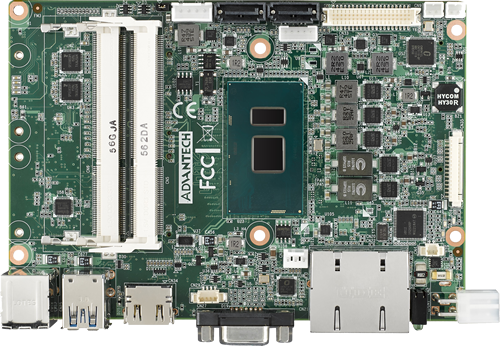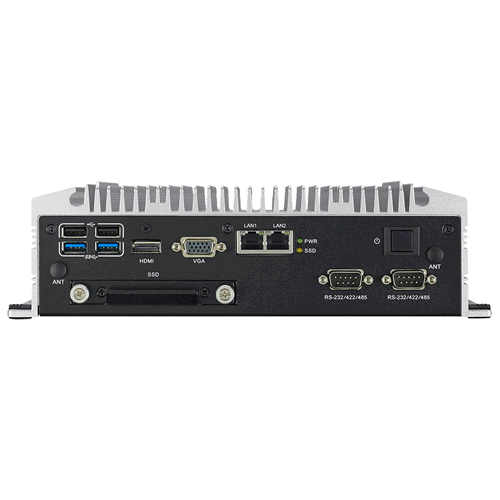Our Products Make Your Product Better®

Related Products
Powered by Intel® Celeron® J1900 2GHz and N2807 1.58GHz processors, the PPC-1154 is a operator panel computer designed to serve as a human machine interface (HMI). It is a PC-based system with a 15" color TFT LCD display, onboard Ethernet controller, and multi-COM port interfaces. With a built-in CFast socket, the PPC-1154 is as compact and user friendly as a multi-function computer. In addition, its "fit anywhere" design makes it very flexible and able to be used in many different kinds of installations. It can be VESA 75/100 wall mounted.
MIO-5272 is designed using MI/O Extension form factor (compact series, 146 x 102 mm) and powered by 6th "SkyLake" generation of Intel® Core™ U series processors which have low power features but al
SIB-A2151 is an industrial grade dual core mobile device for in vehicle computer and in vehicle NVR solution. SIB-A2151 support Full-HD NVR solutions and is fully integrated certified hardware and intelligent management software design. SIB-A2151V integrated in-vehicle power (ISO-7637-2), in-vehicle certifications (E-Mark, IEC-60721-3-5 5M3) and well-developed vehicle software SDK and APIs for in-vehicle applications. They also provided extension capability and wireless communication (GPS/G-sensor/Wi-Fi/3G/CANBus) for excellent connectivity, high graphic power (Up to 1080p @120fps) for video preview, and integrated software for manageability and security.

Xenomai Real-time
EMAC has been offering Xenomi Real-time operating system "RTOS" extensions as an option to our EMAC OE Embedded Linux distribution. Xenomai is offered as one of many optional off-the-shelf Linux modules available for our distribution. EMAC, can also provide custom Real Time Drivers and Application assistance if required. Additionally, EMAC provides a Xenomai SDK plug-in to our IDE for program development.
Xenomai is a Free Software project in which engineers from a wide background collaborate to build a versatile real-time framework for the Linux© platform. While Xenomai is a real-time development framework cooperating with the Linux kernel, in order to provide a pervasive, interface-agnostic, hard real-time support to user-space applications, seamlessly integrated into the GNU/Linux environment.
The main project goal is to help migrating industrial applications from proprietary real-time systems to Linux.
Xenomai is about making various real-time operating system APIs available to Linux-based platforms. When the target Linux kernel cannot meet the requirements with respect to response time constraints, Xenomai can also supplement it for delivering stringent real-time guarantees based on an original co-kernel technology.
Originally named Xenodaptor, the project that would soon become Xenomai was announced on August 2001 by Philippe Gerum. The Xenomai 1.0 milestone was reached in March 2002.
In its early days, Xenomai used to be an add-on component to real-time Linux variants for emulating traditional RTOS, originally based on a dual kernel approach. Over the years, it has become a full-fledged real-time Linux framework on its own terms, also available on single/native kernel systems.
Adeos/I-pipe are companion projects to Xenomai, which implements a key component of a dual kernel configuration: the interrupt virtualization mechanism delivering high priority events to the Xenomai co-kernel with short and predictable latencies. Xenomai was the first real-time extension to be ported over the I-pipe, followed a year after by RTAI.
In the 2003-2005 period, the original core team members – namely Gilles Chanteperdrix and Philippe Gerum – contributed significantly to the RTAI project, before focusing back on Xenomai’s own goals, which led to the release of Xenomai 2.0 in October 2005.
Since then, Xenomai 2 has been actively maintained and ported to various CPU architectures, for a user base mainly involved in the industrial automation industry.
The Xenomai 3 architecture introduces a paradigm shift, as users are no more tied to the dual kernel configuration enabled by the I-pipe, but may run the real-time APIs and their applications transparently over a single kernel configuration as well.




